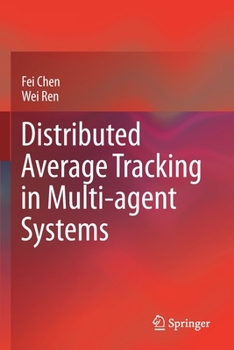Distributed Average Tracking in Multi-Agent Systems
Select Format
Select Condition 
Book Overview
This book presents a systematic study of an emerging field in the development of multi-agent systems. In a wide spectrum of applications, it is now common to see that multiple agents work cooperatively to accomplish a complex task. The book assists the implementation of such applications by promoting the ability of multi-agent systems to track -- using local communication only -- the mean value of signals of interest, even when these change rapidly with time and when no individual agent has direct access to the average signal across the whole team; for example, when a better estimation/control performance of multi-robot systems has to be guaranteed, it is desirable for each robot to compute or track the averaged changing measurements of all the robots at any time by communicating with only local neighboring robots. The book covers three factors in successful distributed average tracking:
algorithm design via nonsmooth and extended PI control;distributed average tracking for double-integrator, general-linear, Euler-Lagrange, and input-saturated dynamics; andapplications in dynamic region-following formation control and distributed convex optimization.
The book presents both the theory and applications in a general but self-contained manner, making it easy to follow for newcomers to the topic. The content presented fosters research advances in distributed average tracking and inspires future research directions in the field in academia and industry.





